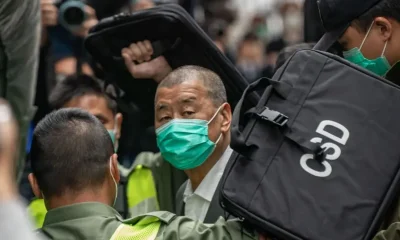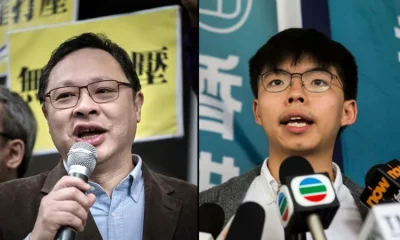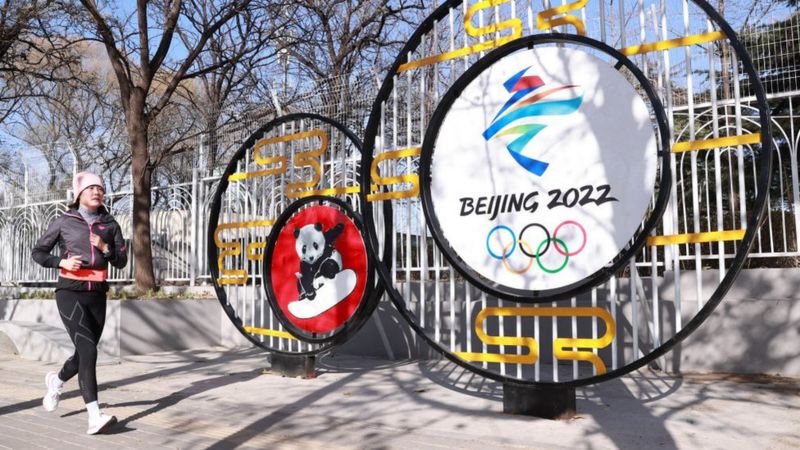International
Hong Kong Police Intensify Surveillance To Monitor Activists
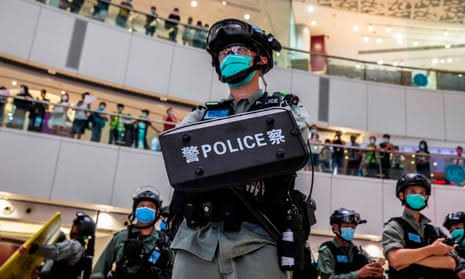
Eko Hot Blog reports that Hong Kong unionist Joe Wong had applied for permission to hold a Labour Day march, but cancelled his request to police in an abrupt U-turn after he briefly went missing.
He cannot reveal what led to the change of heart, a result of a confidentiality clause in a sweeping national security law Beijing imposed on Hong Kong in 2020 to quell dissent.
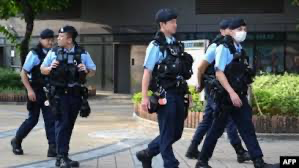
Hong Kong Police
EDITOR’S PICKS
Three years after the law’s enactment, activists say Hong Kong’s police have stepped up surveillance — pre-emptively discouraging rallies before applications are filed, paying home visits in the lead-up to days seen as politically sensitive and summoning organisers for warning chats.
“It’s impossible to organise any large-scale rally and march now,” fellow labour unionist Denny To told AFP. “It’s certainly a process of taming.”
The clampdown on perceived dissent in Hong Kong appears to extend well beyond traditional opposition parties like the League of Social Democrats.
It has hit groups like a women’s association and even a Cantonese language preservation association whose founder’s home was searched last month, with police demanding the removal of a fictional essay depicting a dystopian future Hong Kong.
“It appears the striking range has expanded,” said Chan Po-ying, leader of the League of Social Democrats.
For some, police visits have become regular occurrences, according to seven activists who spoke with AFP.
But details of police conversations cannot be shared due to the law’s confidentiality clause. “The impacts are invisible,” said To.
In response to queries about new tactics deployed by the national security department, Hong Kong police told AFP they “take appropriate actions… according to the laws”.
Activists have also experienced heightened police attention in the lead-up to two key dates in recent years.
FURTHER READING
-
FULL VIDEO: Watch Tinubu Ring Closing Bell During Historic Visit To NASDAQ
-
UNGA 78: Tinubu Asks World Leaders To Sanction Illegal Smuggling Of Arms & Minerals In Africa
One is June 4, the anniversary of the Tiananmen massacre in Beijing.
The other is July 1, the day Britain handed its former colony back to China 26 years ago.
“I asked why they would come to me… and they said those days were ‘high-risk days’,” one activist whose group is now disbanded told AFP on condition of anonymity.
Prior to the crackdown, massive crowds of people from all walks of life would gather on these two dates every year — an indication of the relative freedom the city enjoyed.
But the annual June 4 vigils were forced to stop, while July 1 this year saw no sign of protests.
“They want you to do nothing,” the activist said, referring to the police.
Police have also made appointments to “stay in touch”, said two activists, with interactions ranging from a casual greeting to requests for rally plans.
All the activists AFP spoke to said they were told to attend their meetings with police alone.
The check-ins have taken a heavy mental toll, they said.
They described a fear of being followed, as well as worries that meeting friends could unintentionally implicate them too.
One said he removed his doorbell as the ringing startled him — a holdover from police visits — and he had nightmares after each meeting.
“I can’t live out my complete self,” another activist told AFP.
Despite the stress, holding fast under pressure is crucial, said Chan, adding “You can’t just sit back”.
One activist said she was focusing on “preserving strength for the future”.
“I will try my best not to think about whether something is illegal or sensitive,” she told AFP.
“Instead, we should try to argue that this is our right, and it’s lawful — until they tell us it’s not.”
Click to watch our video of the week
Advertise or Publish a Story on EkoHot Blog:
Kindly contact us at [email protected]. Breaking stories should be sent to the above email and substantiated with pictorial evidence.
Citizen journalists will receive a token as data incentive.
Call or Whatsapp: 0803 561 7233, 0703 414 5611


